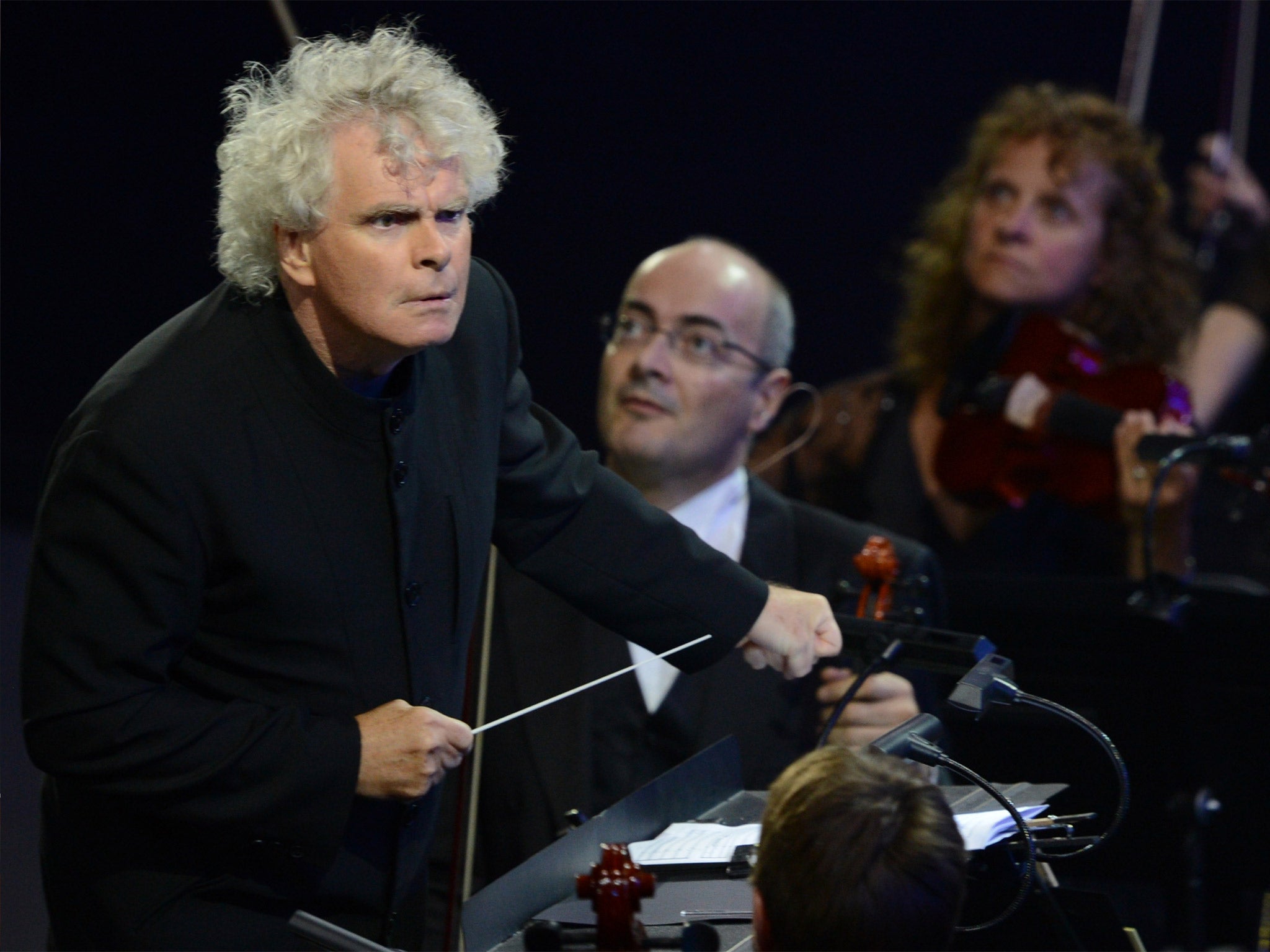Sir Simon Rattle returns to London for his ‘last big job’
Conductor’s homecoming boosts hopes for new venue to replace Barbican

Your support helps us to tell the story
From reproductive rights to climate change to Big Tech, The Independent is on the ground when the story is developing. Whether it's investigating the financials of Elon Musk's pro-Trump PAC or producing our latest documentary, 'The A Word', which shines a light on the American women fighting for reproductive rights, we know how important it is to parse out the facts from the messaging.
At such a critical moment in US history, we need reporters on the ground. Your donation allows us to keep sending journalists to speak to both sides of the story.
The Independent is trusted by Americans across the entire political spectrum. And unlike many other quality news outlets, we choose not to lock Americans out of our reporting and analysis with paywalls. We believe quality journalism should be available to everyone, paid for by those who can afford it.
Your support makes all the difference.The world-renowned conductor Sir Simon Rattle is “coming home” to take over as music director at the London Symphony Orchestra (LSO) – but has insisted his move is not contingent on his wishes for a new concert hall in the capital being granted.
Sir Simon, who is leaving his current post as chief conductor and artistic director of the Berliner Philharmoniker, will also serve as principal conductor while being involved in every aspect of the LSO’s work for his “last big job”.
The Liverpool-born conductor, who joined the Berliner Philharmoniker in 2002, first appeared with the LSO in 1977 at the age of 22 and later led the City of Birmingham Symphony Orchestra to becoming one of the finest in the world.
He has strongly supported the idea of a “world-class” concert hall being built in London, saying last month that a “proper” venue to succeed the merely “serviceable” Barbican Hall would allow musicians to “flourish”.
Yesterday, he welcomed the Chancellor George Osborne’s recent announcement that the idea will be considered, saying: “This has all moved so fast, it’s like going down Niagara Falls in a barrel.”
He added: “The feasibility study has been announced, which is a wonderful thing. I wanted to kick-start the conversation about the possibility of a change and expansion. We have to see if it’s feasible.”
But Sir Simon said his return was not prompted by this development but because of “the people”. “It feels like a group that will not put a ceiling on what they can achieve,” he said.
“It’s wonderful to be bringing Simon back to Britain,” said Kathryn McDowell, the managing director of the LSO. “He is the embodiment of the 21st-century music director.” The LSO’s chairman, Lennox Mackenzie, said the appointment was the latest in “successive generations of great musical leaders from Sir Edward Elgar to André Previn and Sir Colin Davis to Valery Gergiev”.
Sir Simon will take on the LSO role in September 2017. For the first year, he will split his time between Berlin and London before leaving the German institution in 2018.
“The idea of coming home and actually having a position in this fantastic city, which I never had, is a thrill to me,” Sir Simon said. While he will have a house in London and spend four months of the year there, he will be based with his family in the German capital.
“There are a few great orchestras in the world,” he said. “Each has different things to offer. In some ways, these two orchestras are as different as you could imagine.”
He said he wants to take advantage of the “extraordinarily vibrant composing scene”, as well as play a more mixed programme of work, including earlier work. He also wants to offer universal access to music, especially to young people, and explore possibilities of how to adapt to the digital era.
Sir Simon admitted that recent reports into culture, such as the Warwick Commission study, showed “alarming” statistics on the availability and interest in culture across the country.
“That’s something that desperately has to be addressed,” he said. “This is a matter for the whole country.”
Join our commenting forum
Join thought-provoking conversations, follow other Independent readers and see their replies
Comments